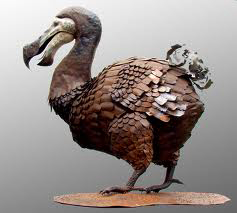
The other day a canoeing partner of mine mentioned he’d faced a bit of dilemma. His cedar-strip canoe, which he and I had used one spring to paddle down the Black River in Muskoka, was in need of repair. Stored out in the open, the canoe had generally resisted the elements fairly well, except where the water had collected in the canoe gunwales and caused some of the wood to rot.
“I needed somebody to repair the damage,” he said. “Surprisingly, I found a guy near Huntsville. That’s what he did – repaired canoe gunwales.”
In a million years I wouldn’t have thought there was anybody around with that kind of specialized skill – just repairing canoe gunwales. But there he was, my friend said, and he was even capable of refinishing the entire surface of the canoe. I was fascinated that a person who probably called himself a canoe repairman, was alive and in business in 2012. And even more attractive, as far as my friend was concerned, he could do all that work for a reasonable price, a price reminiscent of an era when labour was definable and affordable.
That got me thinking about the number and kinds of jobs that – because of automation, sophisticated labour-management relations and/or globalism – have gone the way of the dodo bird. Jobs such as print typesetter, seamstress, railway brakeman, lighthouse keeper, directory assistance telephone operator, elevator operator, post-hole digger, dark-room film developer, business comptroller and pin boy, to name a few, have all but disappeared. Even such skilled trades as farrier, gas-station attendant, sales clerk and customer service bank teller tend to be few and far between.
I myself have worked in jobs that no longer exist. When I was a teenager in search of part-time work, I found it on the main street of Agincourt, Ontario, where Dick Dee ran a typewriter repair shop. Dick could tear down Smith Corona, Underwood, Remington or Olivetti in minutes. He could fix a jam in its gears, clean its keys and restring its ribbon just as quickly. In fact, he allowed himself to teach me those skills; passing them along didn’t apparently threaten the future of his business. Fortunately, Dick sold his typewriter repair shop and retired before the computer altogether eliminated his life’s work and his family’s livelihood. But I always remember his mantra.
“Work fast,” he used to say. “Typewriters aren’t here forever.”
The other job I had once was that of variety television writer. I learned that skill from my father and my sister. They were the best such writers in the genre. Variety shows – those half-hour or 60-minute shows with entertainment as varied as singing, dancing, juggling, puppetry, acrobatics, ventriloquism and sketch comedy – actually go back to Victorian England on stage, but back to the early 1950s on TV. Our job as TV variety writers was to find the acts that would provide as diverse and unique an arrangement as a half hour or full hour of television could deliver.
For example, my father, Alex Barris, pioneered such a show in 1956 with “The Barris Beat” on CBC TV in 1956. My sister, Kate Barris, worked with some of the best comedy variety performers ever, including Johnny Wayne and Frank Shuster of “Wayne and Shuster.” And I worked with one of the best TV variety hosts in Canada in the 1980s on “Tommy Banks Live.”
Anyway, most TV variety writing went down river when Canadian networks felt people’s attention could not be sustained on the tube for more than 30 seconds, when advertisers weren’t interested in sponsoring full shows, and when TV producers claimed (incorrectly) that there wasn’t enough fresh talent around to book weekly or semi-annually scheduled TV variety shows. And losing that work changed my life. When CBC TV cancelled “Tommy Banks Live,” for example, I had to move my family from Edmonton. I haven’t written a TV variety script since.
Thankfully, some of the jobs our recent house renovation has demanded still have healthy populations in these parts. The work on the house over the past months has required framers, a roofer, electricians, plumbers, a drywaller, cement pourers, painters and finishers (not to mention a skilled contractor). Fortunately, most have come from within a few kilometres of home and all have illustrated as much professionalism as those jobs often called “the professions.” I suspect the only way to ensure that skilled work never goes away is to keep employing it.
There is one guy whose occupation I worry about, however. You know the fellow who periodically wanders the streets ringing and bell and pulling a blade sharpener on wheels? His visits to our streets are few and far between, but each summer I store up my dull clippers, edgers and lawn mower blades in anticipation of his return.
I hope his job never disappears because this world doesn’t want me trying to sharpen anything.